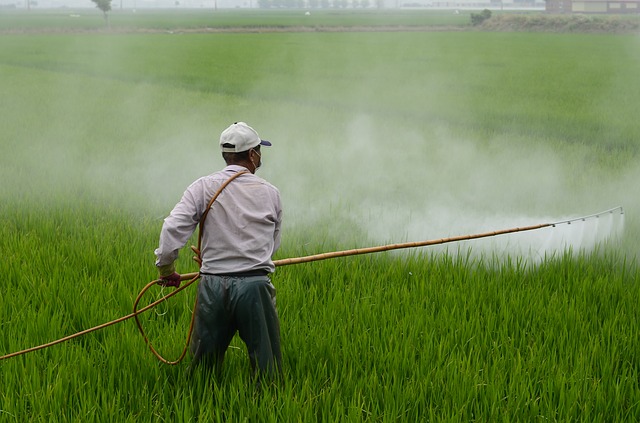 People who care about their health and the environment often choose to eat organic to avoid toxic pesticides. Consumption of pesticides has been linked to mild health conditions like headaches, dizziness, fatigue and nausea to more serious ones like cancer, reproductive and endocrine disruption, respiratory problems, memory loss, inflammation and immune system issues.
People who care about their health and the environment often choose to eat organic to avoid toxic pesticides. Consumption of pesticides has been linked to mild health conditions like headaches, dizziness, fatigue and nausea to more serious ones like cancer, reproductive and endocrine disruption, respiratory problems, memory loss, inflammation and immune system issues.People who eat organic, believe that they are excluded from the health effects of pesticides, however research is emerging to challenge that assumption.
Nearly half (43 percent) of domestically organic fruits and veggies tested in Canada over the past two years showed pesticide residues. And even more alarmingly, 1.8 percent of Canadian organic produce violated Canada’s maximum allowable limit of pesticides. The amount was higher on imported organic produce, which tested at 46 percent tainted with pesticides.
A survey of the United States would probably shows the same results, but this kind of study is yet to be performed.
So how is this possible? Organic farmers are definitely not using pesticides. The reason is due to a phenomenon called “pesticide drift”. This means that the pesticide sprayed at neighboring farms are carried over to organic farms by the wind.
This issue is currently getting attention in California’s farm belt near Sacramento. The same winds that blow pesticides toward organic farms also blow toward the area’s schools and day care centers. Children are particularly vulnerable to the effects of pesticides because of their developing immune systems. Children also inhale more air and more water in relation to their size. About 500,000 kids go to school within a quarter mile of fields sprayed with pesticides. And no federal or state laws prohibit this.
Some of these daycares and schools have been claiming that their kids are getting sick. Their teachers are getting sick too, with conditions like asthma. In fact, 20 percent of children in California’s Central Valley, where most of California’s food is grown, have asthma. This is much higher than the national average.
The pesticides can stay in the air for days, according to a scientist from the pesticide action network. These scientists use a low-cost airborne particulate matter detector and lend these devices to local homeowners, schools and daycares to test their own air.
It is hard to prove the link between pesticides and serious diseases but the researchers at University of California Los Angeles found an increase in cancer risk from a mix of pesticides and fumigants used on conventional produce fields.
The residents of these communities are pushing back, testifying in front of California’s Department of Pesticide Regulation to help rewrite rules of where and when pesticides are sprayed near schools. Aerial fumigation is also under scrutiny.
For people who live in cities and don’t have to worry about pesticide exposure through air drift, should focus their efforts on limiting exposure by washing their produce. It’s still a good idea to buy organic because this produce will have significantly lower levels of contamination. But it’s also important to take healthy precautions like peeling your fruit and washing your veggies well with veggie wash.
Commercial veggie washes are sold in stores, but they are also easy and cheap to make at home with equal parts white vinegar and water. You can add some fresh squeezed lemon juice or lemon essential oil for extra cleaning power and a fresh scent.
It’s also a great idea to do several detoxes a year to get rid of accumulated pesticides and other toxins that lodge themselves in fatty tissue like fat cells, the liver and the brain.
The 21-Day Body Makeover focuses on detoxing the body while supporting detox organs at the same time. Even if you live a healthy lifestyle, environmental toxins from the water, air and soil make it into your body, clogging up detox channels and lowering energy, preventing weight loss and causing mood issues.
Lighten your body and ease your mind by giving it a good cleaning once or twice a year to improve its ability to eliminate toxins during the rest of the year.
Related Topic: GMO’s in our food

